— They will reside in Chimpanzee Forest with the colobus monkeys –
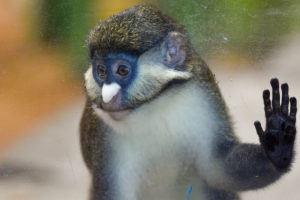
BALTIMORE, MD — The Maryland Zoo in Baltimore is excited to welcome two Schmidt’s red-tailed guenon (gweh·nuhn) to the Chimpanzee Forest! The recently introduced pair are six-year-old female, Naim (nye-em), from ZooTampa at Lowry Park and five-year-old male, Gus, from Zoo Atlanta. They arrived at the Zoo in November and recently finished their 30-day quarantine at the Zoo Hospital. “We are very excited to bring back guenon to the Zoo,” said Kirby Fowler, president & CEO of the Zoo. “They are such charismatic monkeys, and people will really enjoy watching them both in the Chimpanzee Forest and in the Colobus Trail come springtime.”
The pair were sent to the Maryland Zoo as a result of a recommendation from the Guenon Species Survival Plan (SSP), coordinated by the Association of Zoos and Aquariums (AZA). SSPs provide pairing and breeding recommendations to maximize genetic diversity, with the goal of ensuring the long-term survival of the AZA population and the health of individual animals. After a period of introduction, they will share a habitat with the colobus monkeys.
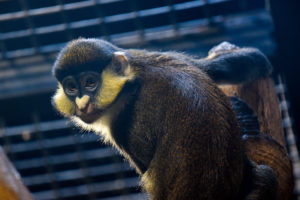
Schmidt’s red-tailed guenon (Cercopithecus ascanius schmidti) are medium-sized monkeys that are widespread throughout eastern central Africa, including Kenya, Angola, Zambia, and Uganda. They live in a variety of habitats such as rainforests, deciduous forests, swamplands and woodlands, usually near rivers.
Red-tailed guenon have a white nose, puffy white cheek pouches, and a colorful chestnut-red tail. Guenons can be as tall as 24 inches, with males weighing between 7-10 pounds while females are a bit smaller at 7-8 pounds. They have more than 20 distinct vocalizations, including alarm calls, chirps, low croaking noises and loud sneezing sounds.
“Right now they are too young for breeding,” said Erin Grimm, mammal collection and conservation manager. “However it is our goal for them to create their own troop and have offspring in the future. For now we hope people will love their energy and admire this active dynamic addition to the colobus habitat.”

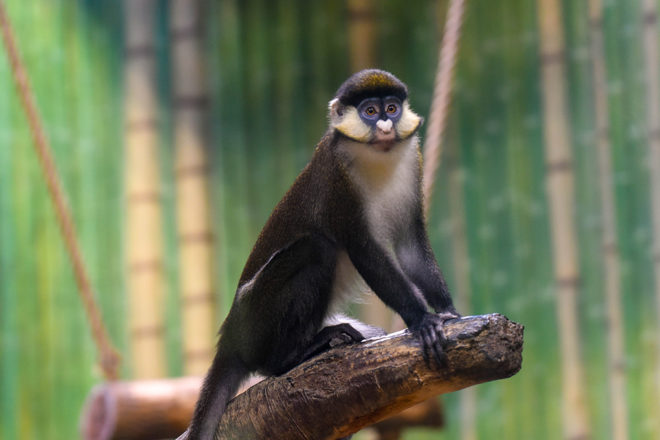
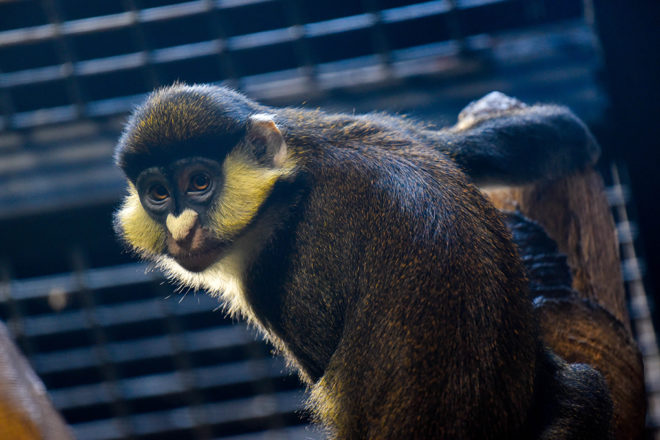
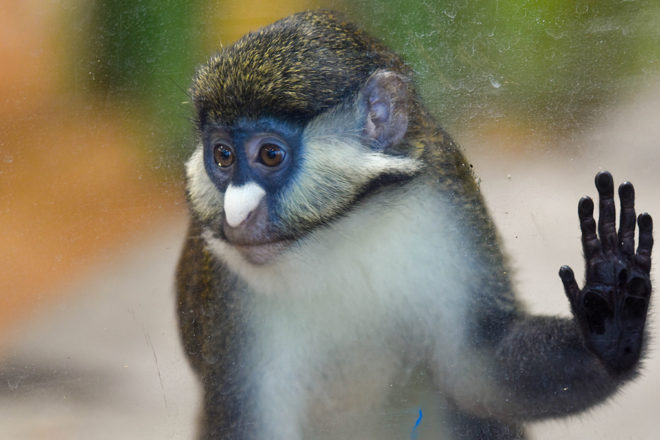
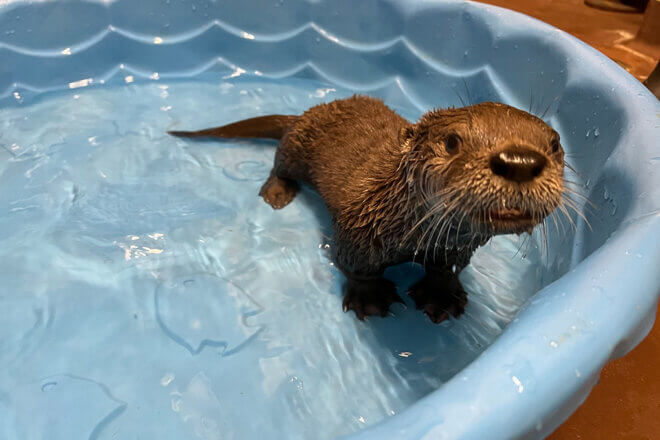
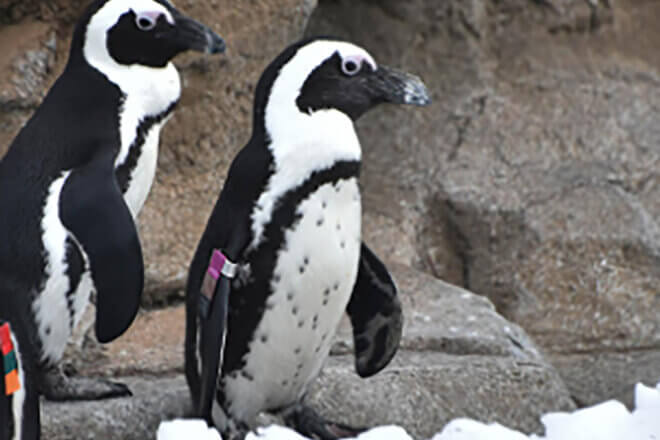
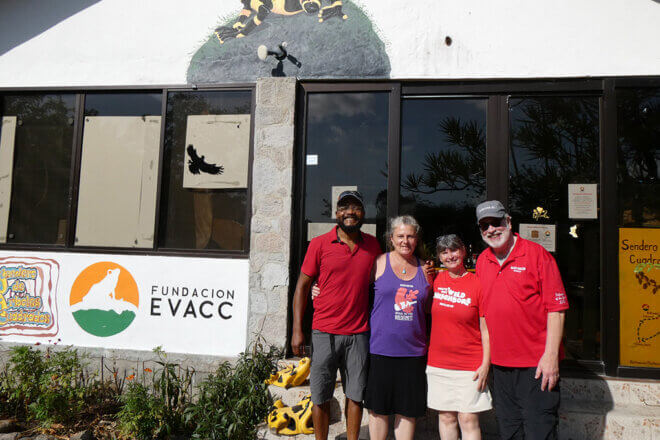

Share this article